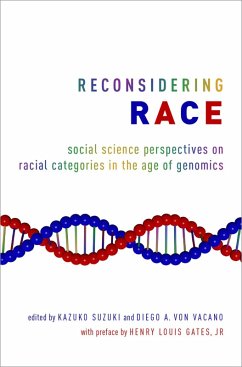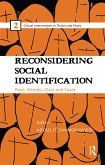Race is one of the most elusive phenomena of social life. While we generally know it when we see it, it's not an easy concept to define. Social science literature has argued that race is a Western concept that emerged with the birth of modern imperialism, whether in the sixteenth century (the Age of Discovery) or the eighteenth century (the Age of Enlightenment). This book points out that there is a disjuncture between the way race is conceptualized in the social sciences and in recent natural science literature. In the view of some proponents of natural-scientific perspectives, race has a biological- and not just a purely social - dimension. The book argues that, to more fully understand what we mean by race, social scientists need to engage these new perspectives coming from genomics, medicine, and health policy. To be sure, the long, dark shadow of eugenics and the Nazi use of scientific racism cast a pall over the effort to understand the complicated relationship between social science and medical science understandings of race. While this book rejects pseudoscientific and hierarchical ways of looking at race and affirms that it is rooted in social grounds, it makes the claim that it is time to move beyond merely repeating the "race is a social construct" mantra. The chapters in this book consider three fundamental tensions in thinking about race: one between theories that see race as fixed and those that see it as malleable; a second between Western (especially US-based) and non-Western perspectives that decenter the US experience; and a third between sociopolitical and biomedical concepts of race. The book will help shed light on multiple contemporary concerns, such as the place of race in identity formation, ethno- political conflict, immigration policy, social justice, biomedical ethics, and the carceral state.
Dieser Download kann aus rechtlichen Gründen nur mit Rechnungsadresse in A, B, BG, CY, CZ, D, DK, EW, E, FIN, F, GR, HR, H, IRL, I, LT, L, LR, M, NL, PL, P, R, S, SLO, SK ausgeliefert werden.









